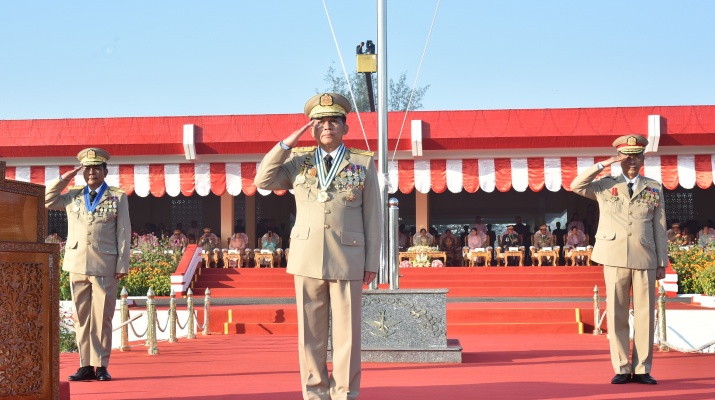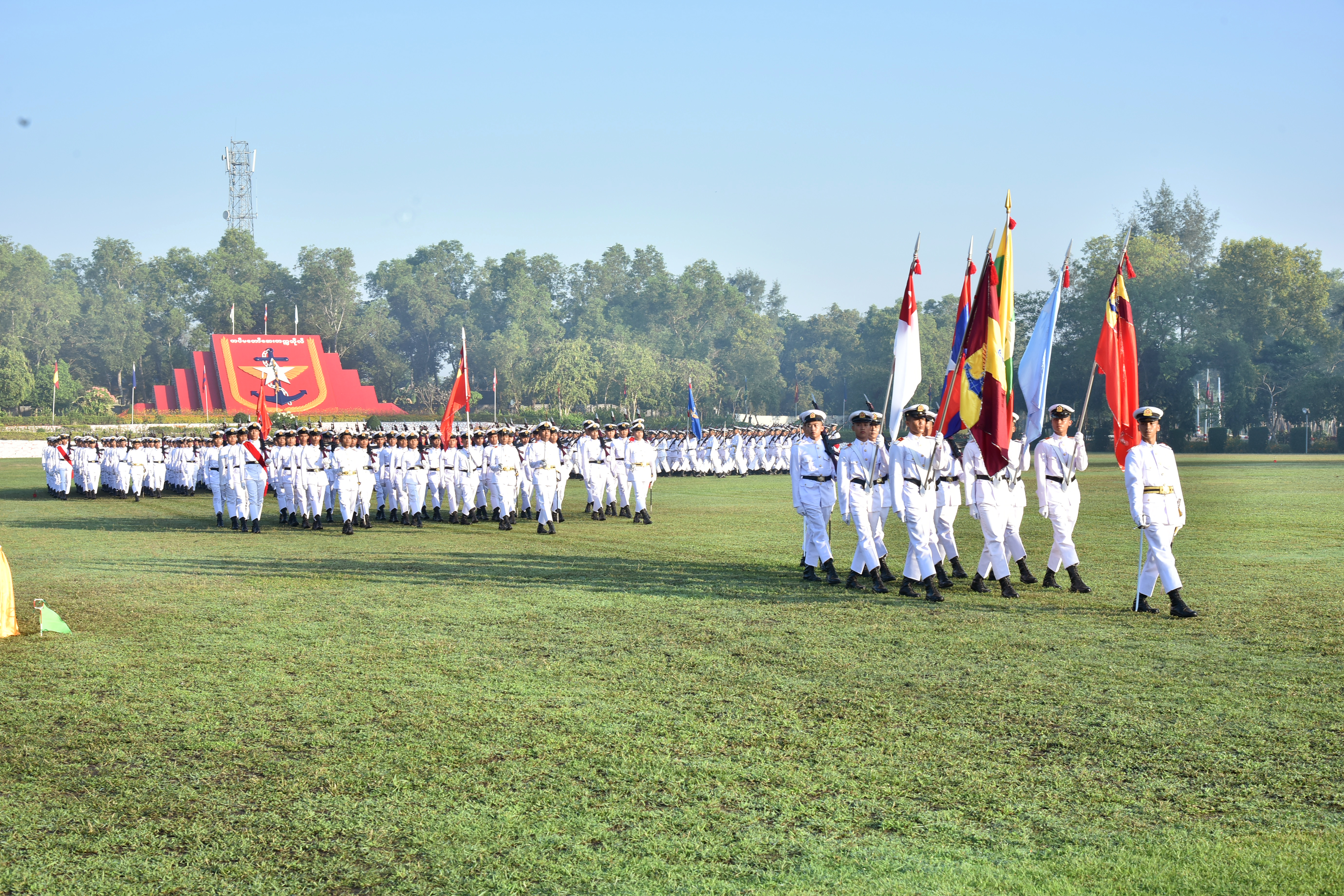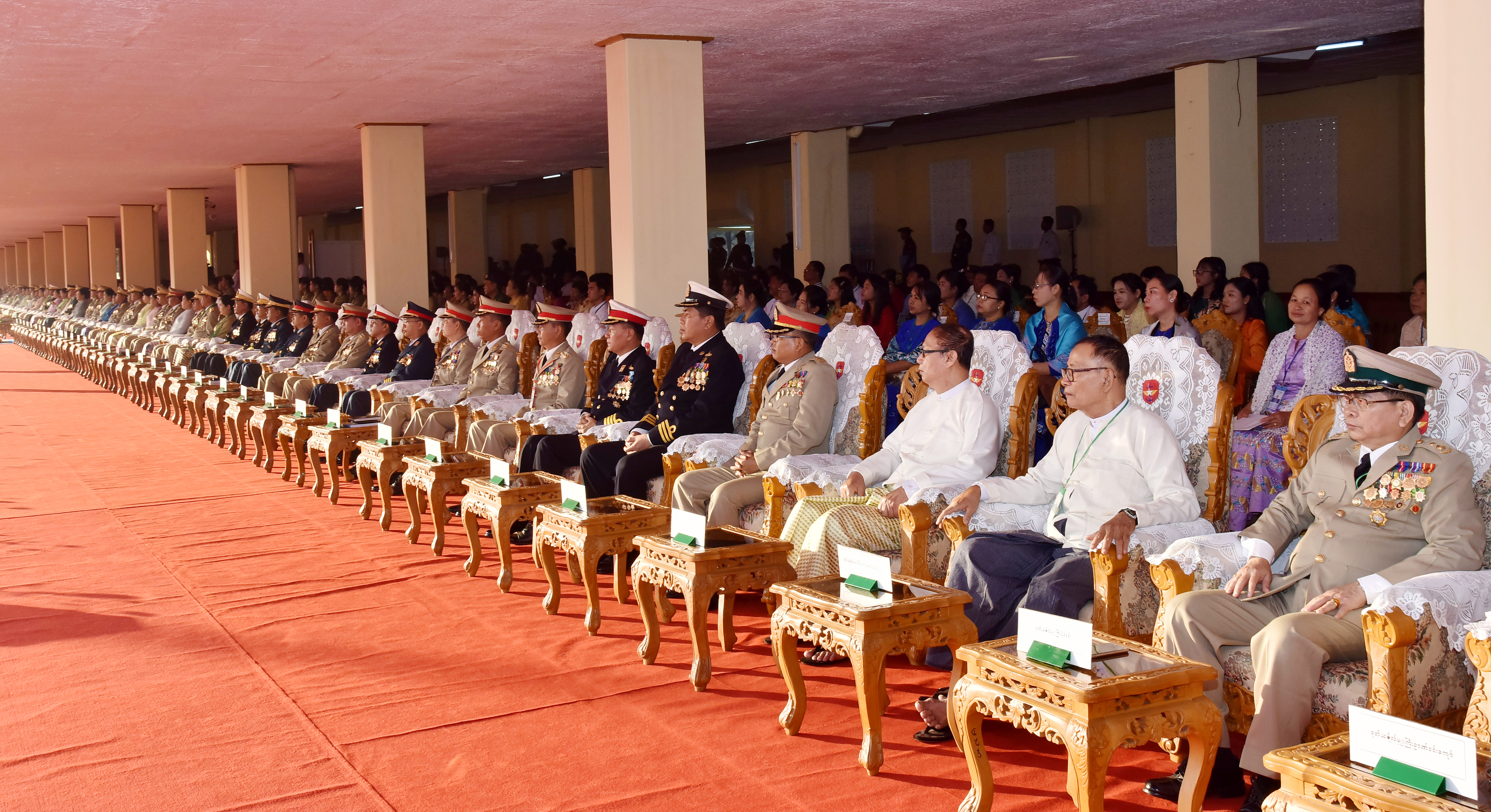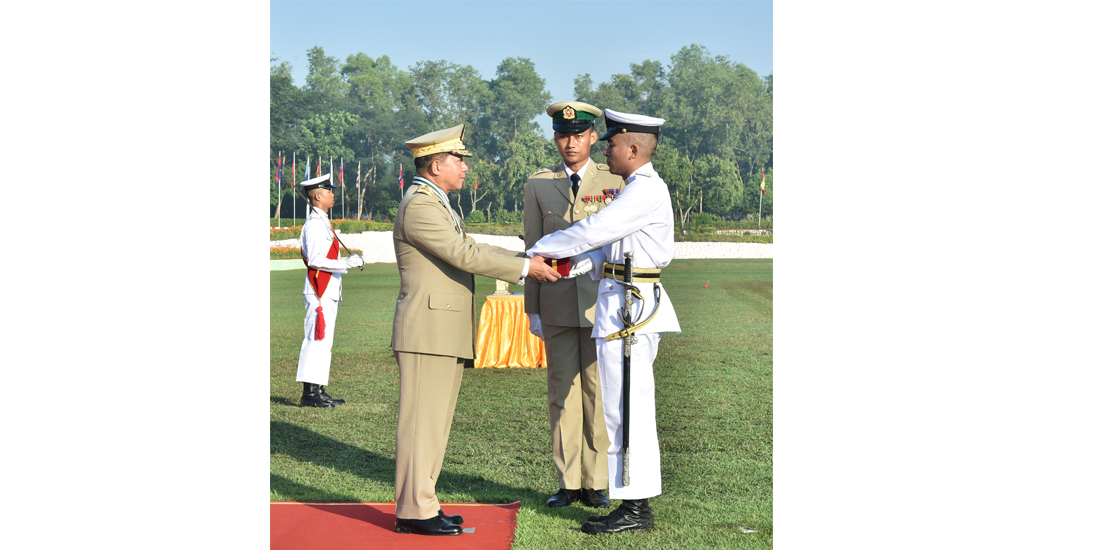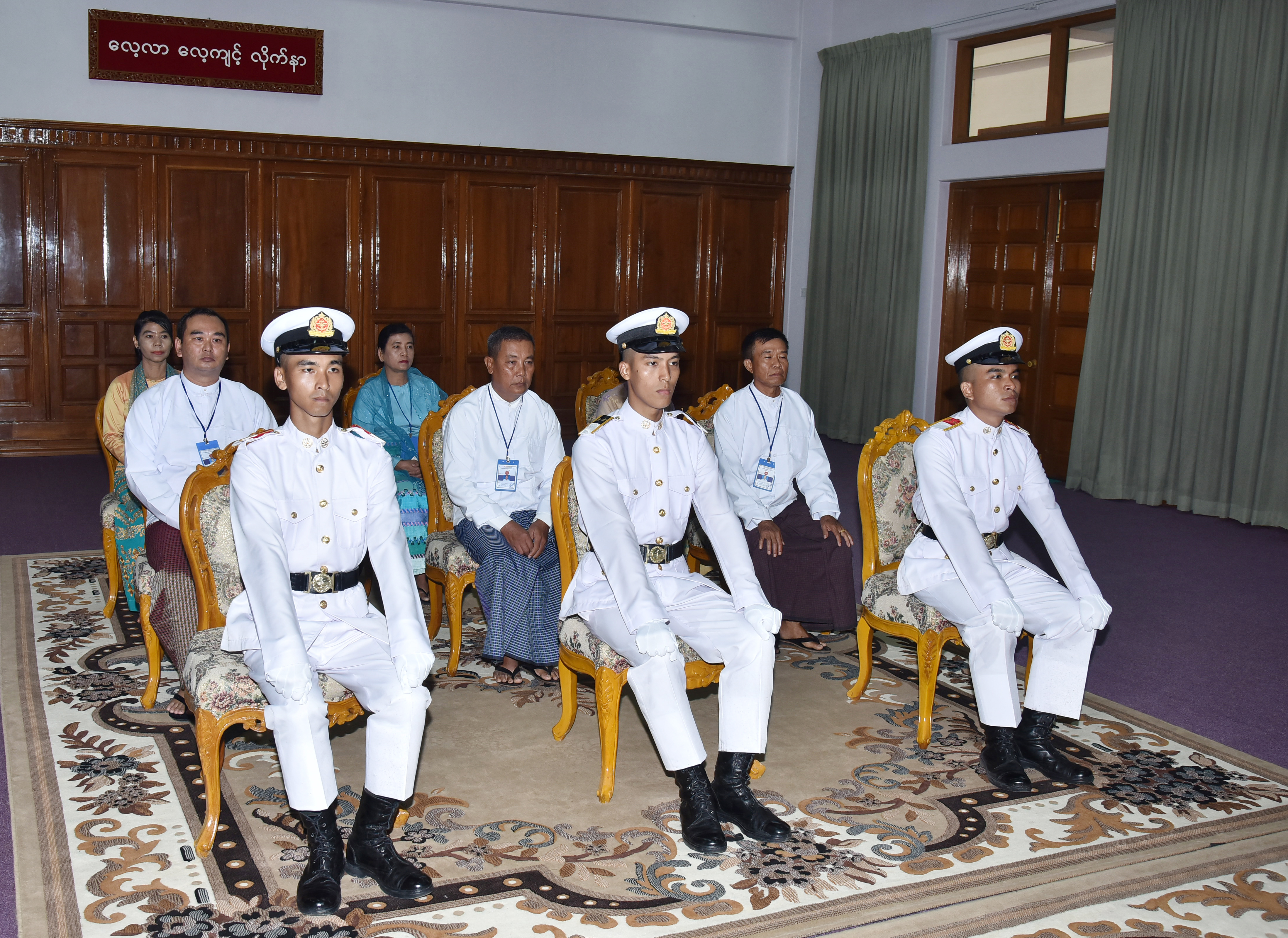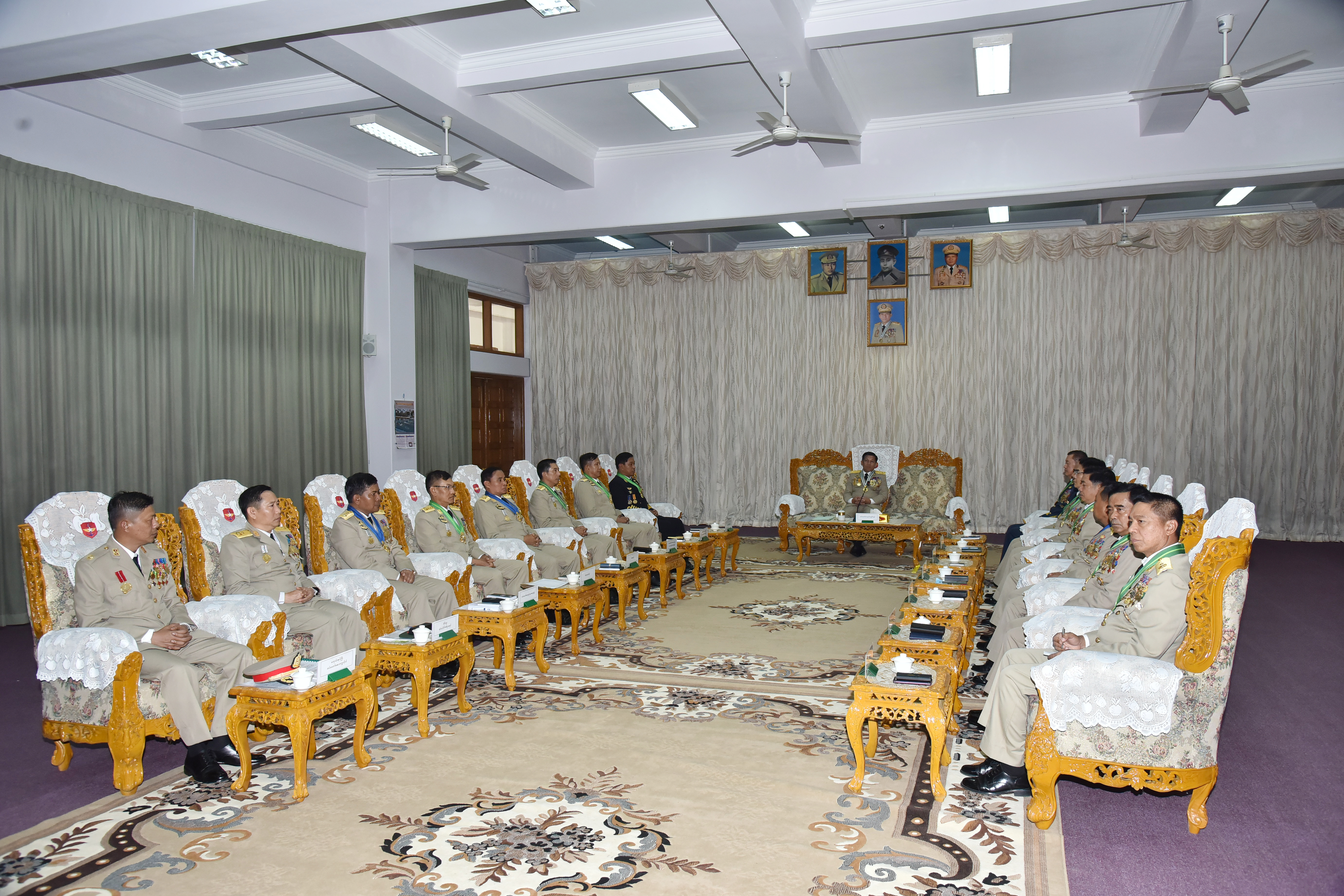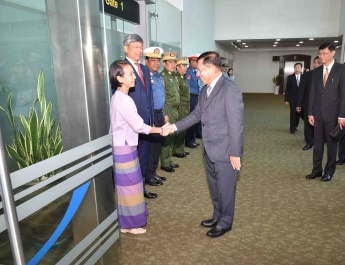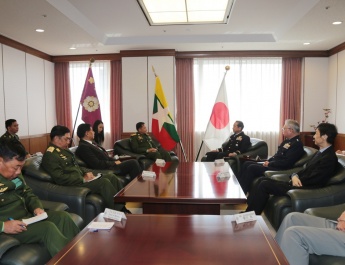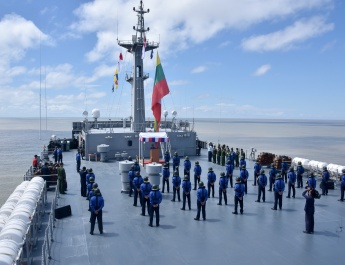Nay Pyi Taw December 19
The graduation parade of the 19th Intake of Defence Services Medical Academy-DSMA, opened with the aim of turning out good medical officers imbued with physical and intellectual ability for the Tatmadaw (Army, Navy and Air), was held at the parade ground of the DSMA in Yangon this morning.
Commander-in-Chief of Defence Services Senior General Maha Thray Sithu Min Aung Hlaing attended the ceremony and delivered an address. Present were Daw Kyu Kyu Hla, wife of the Senior General, Commander-in-Chief (Navy) Admiral Zeya Kyawhtin Tin Aung San, Commander-in-Chief (Air) General Zeya Kyawhtin Maung Maung Kyaw, senior military officers of the Office of the Commander-in-Chief, command commanders, the commandant of DSMA, senior military officers of Mingaladon Station, invited guests and parents and relatives of the graduate cadets.
First, Senior General Min Aung Hlaing took the salute of the cadet companies and inspected the company of the graduate cadets. Then, the cadet companies saluted the Senior General through slow-march past and quick-march past.
Then, Senior General Min Aung Hlaing presented Best Cadet Award to Cadet No 5385 Cadet Phone Pyae Kyaw, Excellent Award in Training to Cadet No 5396 Cadet Wai Yan Pyae Sone and Excellent Award in Studies to Cadet No 5369 Cadet Kaung Pyae Sone.
Afterwards, the Senior General delivered an address. As regards the production of good military doctors through training, the Senior General said, “The army officer testing team systematically selected only the candidates who passed the written test, the practical test and the interview, with the satisfactory level. You had already learnt the military science and the medical science throughout the successive academic years at the DSMA and undergone training to become worthy military doctors who can relay the fine traditions of the Tatmadaw. The State and the Tatmadaw spent time and money in teaching you military science and the medical science. In all seriousness, I urge you all to take pride of and value yourselves in accord with your status as a military doctor. As physicians, you should have high ambition for your life and should strive well with correct conviction for the progress of your life. Moreover, as you are Tatmadaw members you must be obedient, and must shoulder any kind of duty well, with loyalty to your unit, the Tatmadaw and the nation.”
Regarding the need to study the advancement in medical science, he said “Today is an era of rapid development in science and technology and as modern diagnostic devices, medical equipment, medicines and therapies are developed in medical science, there is a need to learn continuously and apply theories with practice. There is a need for continuous learning and continuous practice and always apply the knowledge in practice in order to be able to use warfare and medicine that develop with time.”
As to the critical importance of paramedical troops in establishing a modern army, he said: “In building the Tatmadaw as a standard army, it is not only important that the army has military might with modern weaponry, but also necessary that paramedical troops make sure every Tatmadawman is healthy and fit and has combat readiness. Health care services are critically important as Tatmadawmen, who are to discharge State defence duties regardless of weather and terrain, can perform their military duties only when they are fit.”
With regard to the medical code of ethics, and the need to provide medical services to not only Tatmadawmen and their families but also ethnic people, he said: “It is important that nine oaths that are pledged at every medical graduation ceremony, are embraced as basic values and medical and research ethics are followed with goodwill, kindness and sympathy. Tatmadaw mobile medical teams are providing health care services for ethnic people across regions and states. The first ever team of 44 military medics who proposed to provide medical services in such remote areas as Sagaing Region, Chin State and Naga Self-Administered Zone provided health care services at 22 hospitals in those areas as of March, 2016. The team shifted duties with the second team consisting 44 military medics in April, 2018. Those teams have put their heart and soul in providing health care services to local ethnic people. Since free education was provided for local students and social welfare activities carried out during their free time, they won the respect of local residents. Therefore, you are urged to actively participate in public healthcare services when you serve in the military units to which you are assigned.”
Highlighting the importance of nationalism among the citizens for State stability, he said: “Nationalism means loyalty to one’s own country, pride in culture and historic traditions of one’s own country, the spirit to cherish one’s own country and the united spirit for State stability based on the concept that all citizens own their country together. In other words, it means patriotism of all citizens living in the same country and the spirit to love their own country. Nationalistic spirit ( Winthanu Rakhita Taya in Myanmar language) is also the term that has been used by Myanmar people since ancient times. Its meaning is defined in the Myanmar dictionary as ‘always protecting one’s own country and people’. Only if we can sensibly prevent any act harming nationalism, will we be able to promote our nationalistic fevour and Myanmar will exist until the end of the world.”
Talking about efforts to acquire leadership skills, the Senior General said: “Being junior military leaders, military medical doctors need to build their leadership skills. Leadership means the ability to organize subordinates to follow the way the leader does. They must have correct leadership skills and be able to realize the prescribed aims and objectives together with their subordinate troops. Through the three capabilities of individuals and of military units and regiments, the three capabilities of the whole Tatmadaw will increase and the defence power of our country will improve.”
Then, the Senior General took the salute of cadet companies and left the parade ground. After the parade, the Senior General met the outstanding cadets and their parents at the parlour of DSMA and gave an honourary speech.


